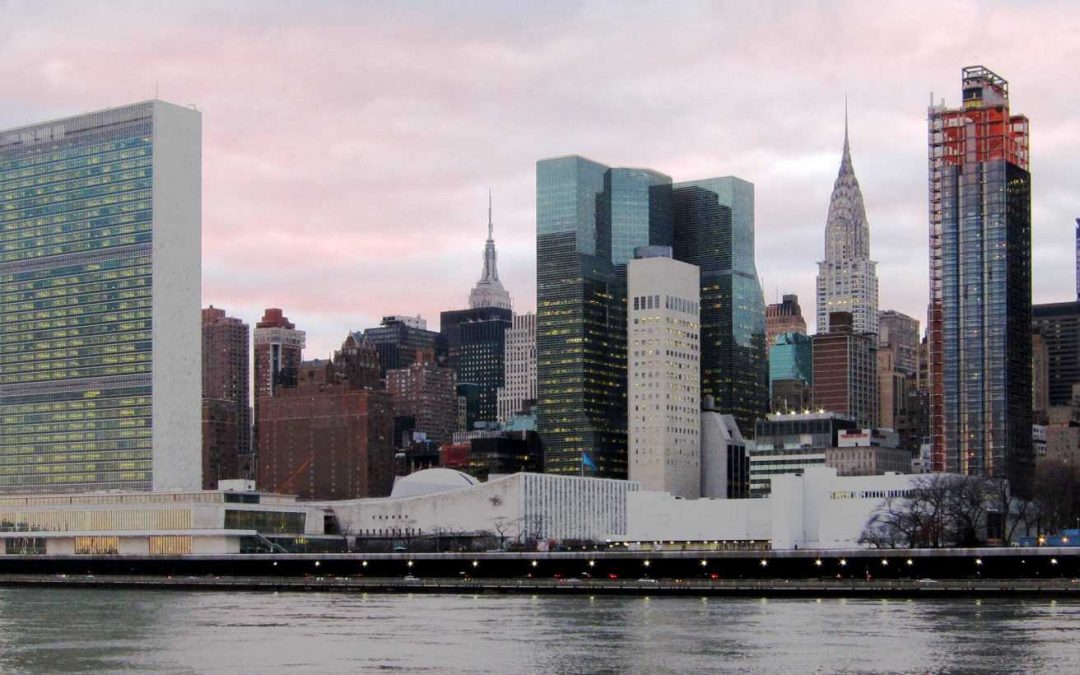Etienne Bowie
Administrative Director, Democratic World FederalistsPeople-Centered Multilateralism: Report on the 67th DPI NGO Conference
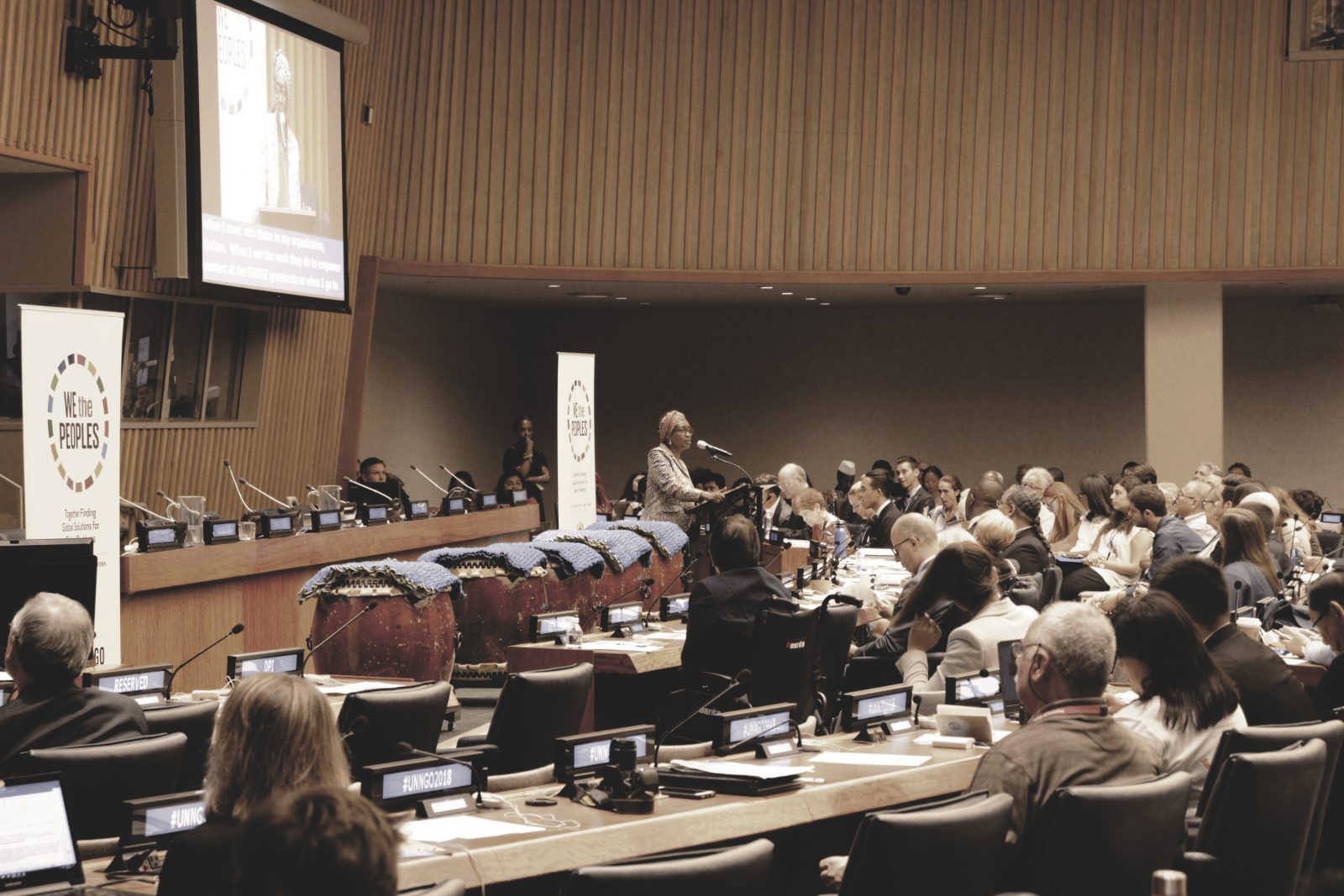
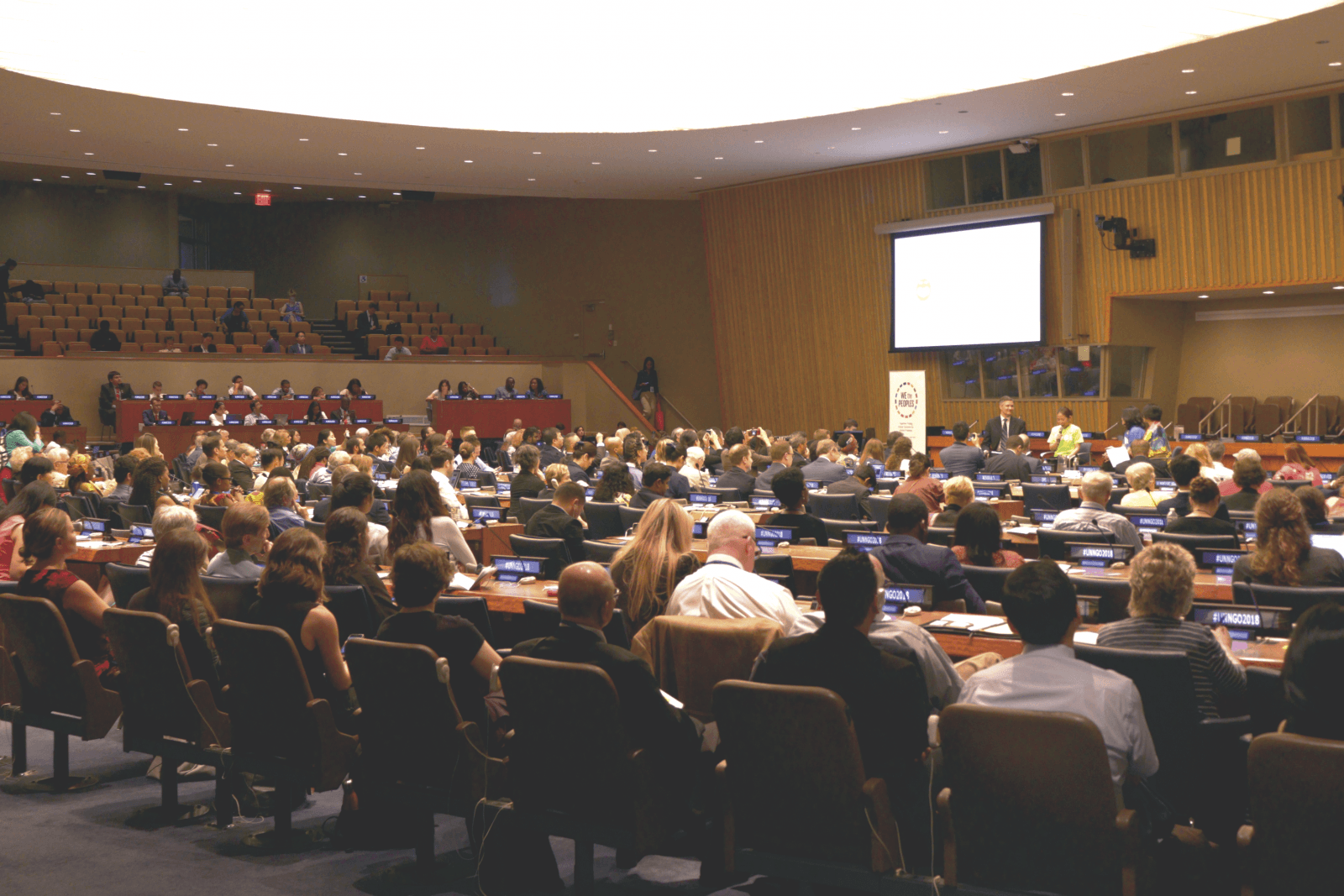
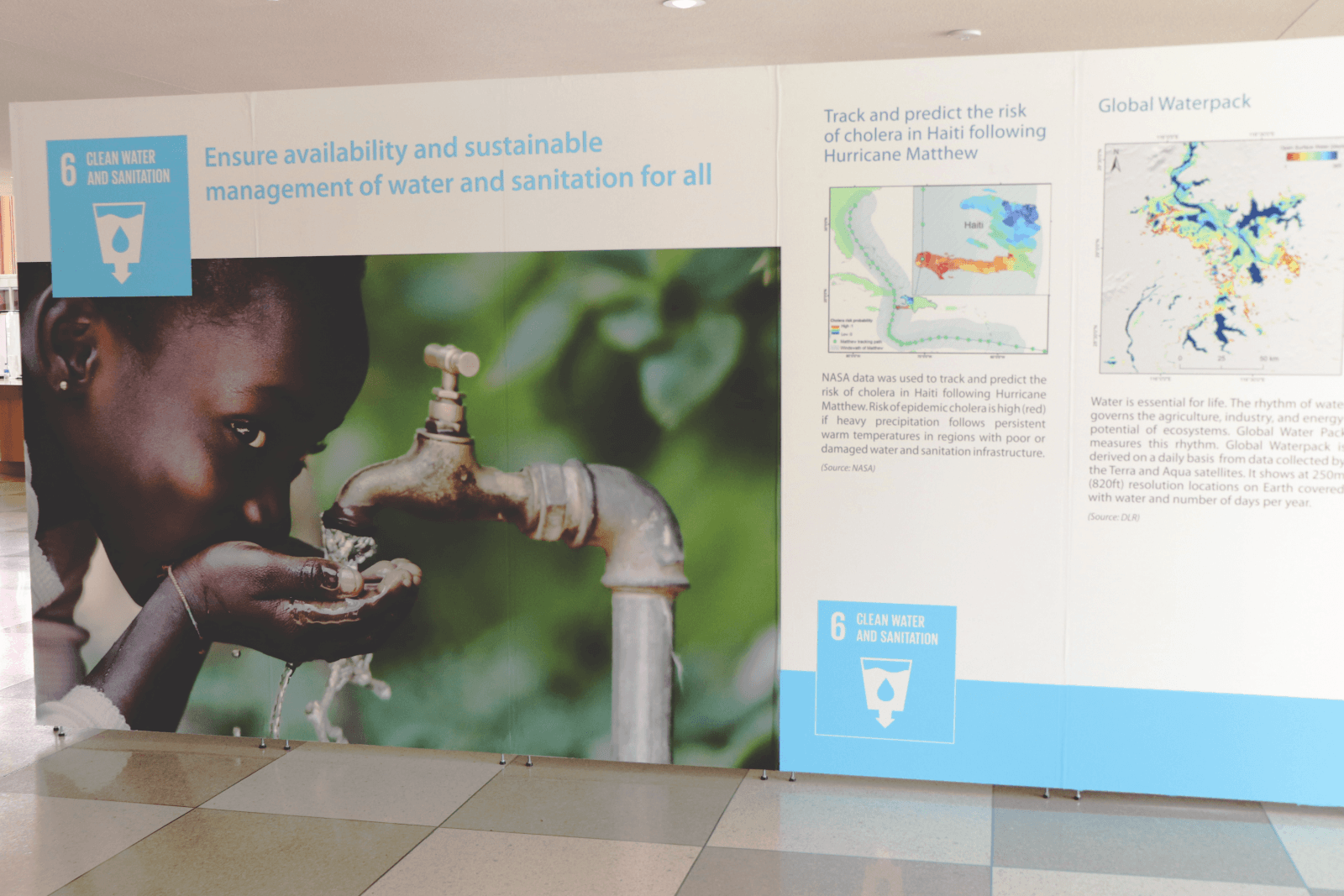
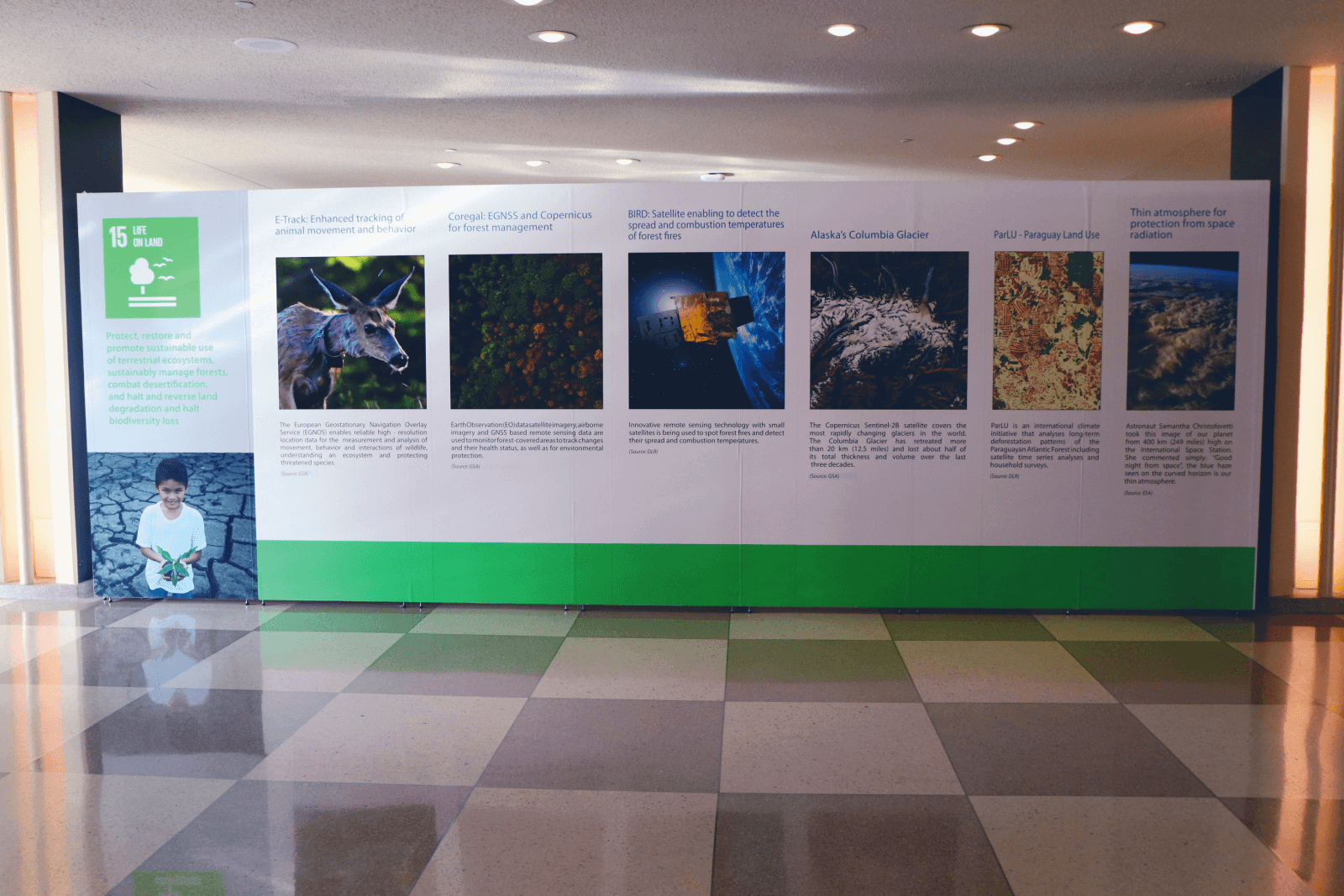
What is the UN DPI?
Since 1947, the United Nations Department of Public Information (UN DPI) is the NGO relations unit of the UN organization—it is mandated to link the UN with NGOs. The UN DPI disseminates information on the work and role of the UN in world affairs by providing “analysis and expertise, and helps to monitor and implement international agreements”. There are over 1,450 NGOs in collaboration with the UN DPI.
Conference Opening
As NGO leaders from all over the world sat in anticipation, the conference opened with the words of speaker and chairwomen of the conference, Winnie Byanyima, Executive Director of Oxfam International. She began to speak, her voice strong but with a peaceful tone told us to “challenge ourselves”. To paraphrase, she told us that today’s UN is one of the old world, one created at the time of the second world war and that if we wished to have a better world then it is up to us to demand one.
To demand a world of peace and justice, many peoples and cultures, sustainable development and growth, and, moreover, a world that reflects the values of the 21st century.
After her speech, it was as if every member of the conference knew that we were on a mission greater than ourselves and at that moment we were vessels of true change. Going forward we were ready to listen, talk, and learn from one another. Her words had awakened a sense of a need to improve the current paradigm.
Conference Opening
UN 2020: The New Multilateralism
There were two programs dedicated to discussing the idea of a new multilateralism titled; “Towards UN2020: The Case for Strengthening Multilateralism” and “Towards UN75: communicating the Case for Multilateralism”. These programs were led by organizations that have dedicated themselves to the reform of the UN; the World Federalists Movement – Institute of Global Policy (WFM-IGP), the United Nations Association – United Kingdom (UNA-UK), CIVICUS, and the Friedrich-Ebert-Stiftung New York (FES-NY).
The goal of these discussions was to identify the desirable elements of “a broadly-based multilateral process which will lead to a proposed World Leaders’ Summit”. The idea is that through identifying elements of a new multilateralism which all peoples and world leaders feel familiar with, we can “develop and harness international civil society initiatives, campaigns, and coalitions committed to progressive global governance reform”. All this leading to, what they call, the UN2020 Global Call to Action as a means to building an agenda for a renewed UN (also known as a democratic world federation).
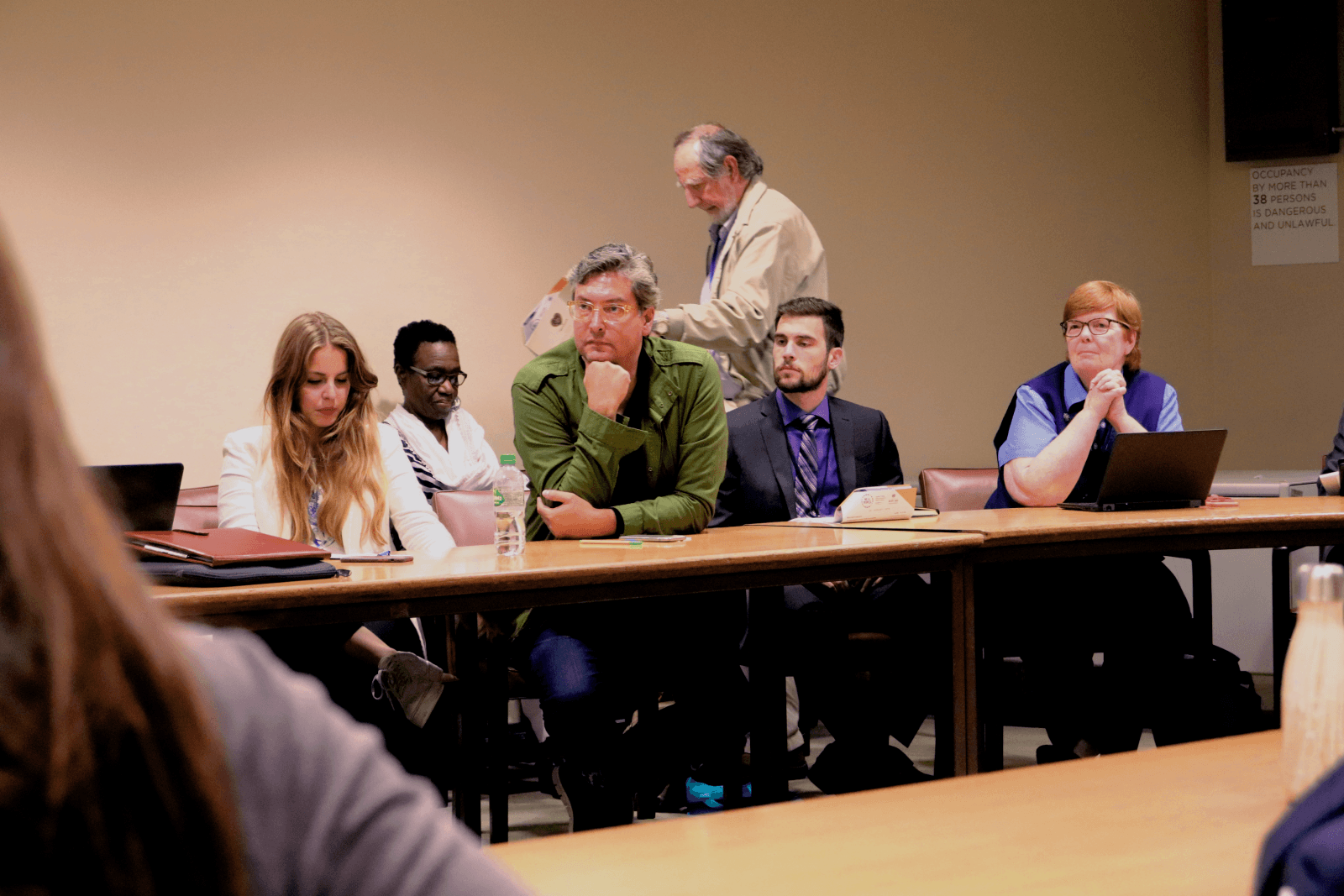
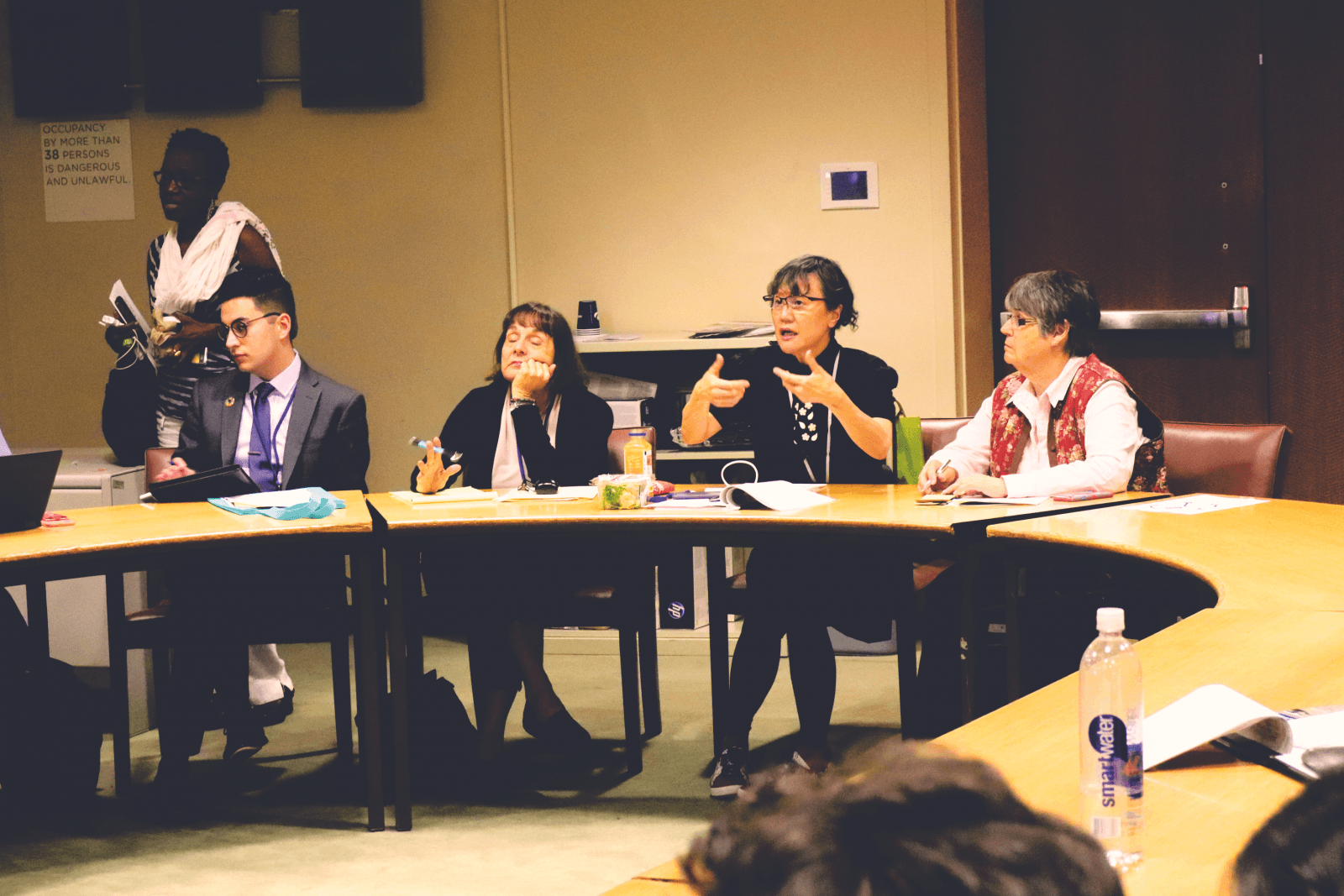
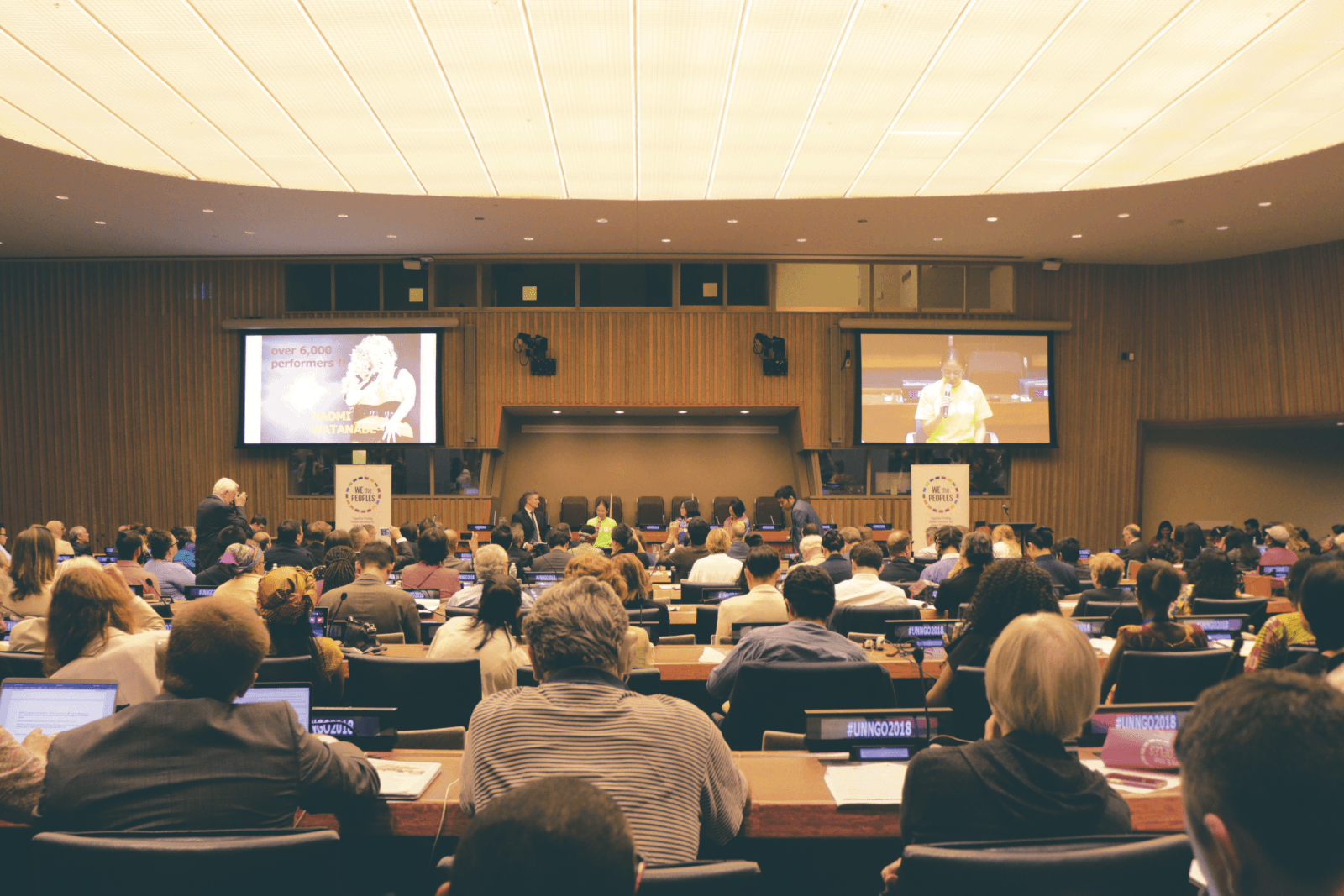
TOWARDS UN2020: THE CASE FOR STRENGTHENING MULTILATERALISM
Towards UN-75: Making the Case for Multilateralism
Accomplishing the Dream of Universal Declaration of Human Rights
The human rights discussions were intense. Many participants in the workshops questioned the UN representatives. They wanted to know why the UN did nothing about the current proxy wars involving the U.S., China, and Russia. They wanted to know why nothing has been done about the recent genocides and civil wars in Africa and Asia. They wanted to know what was the point of the Universal Declaration of Human Rights (UDHR) if the UN Security Council (UNSC) had no dialogue on the issues—as if the five permanent members (P5) had secretly agreed to stay out of each other’s human rights abuses.
Another topic that came up, addressed two new human rights issues; cybercrimes, internet privacy, and killer robots. NGO leaders wanted to know what the UN would do about these new developments and how they planned to move forward. This led to questions about nuclear weapons and what could happen if nukes mixed with cyberwar and the possibilities of a “black hat” hacker taking advantage of cyber-security vulnerabilities. But, the major question concerning cyber war was cyber attacks on democratic elections and the fear that if the US could be hacked then who is next?
The intense conversation did end well with a representative from the Office of the UN High Commissioner for Human Rights promising us all that they were focused on all of the issues we discussed. As their assistant took notes and numbers from NGO leaders that focused on the different matters discussed. They took all of our questions then took a breath and told us that in reality, it came down to us, we are world leaders too, and when we see problems we should try to solve them. They told us that we must use our social media and our voice to start a conversation to push our nations’ leaders to be more humanitarian. He finished by telling us that all the UN was behind us and that the leaders of NGOs and the world are in a position in which all hands were needed on deck.
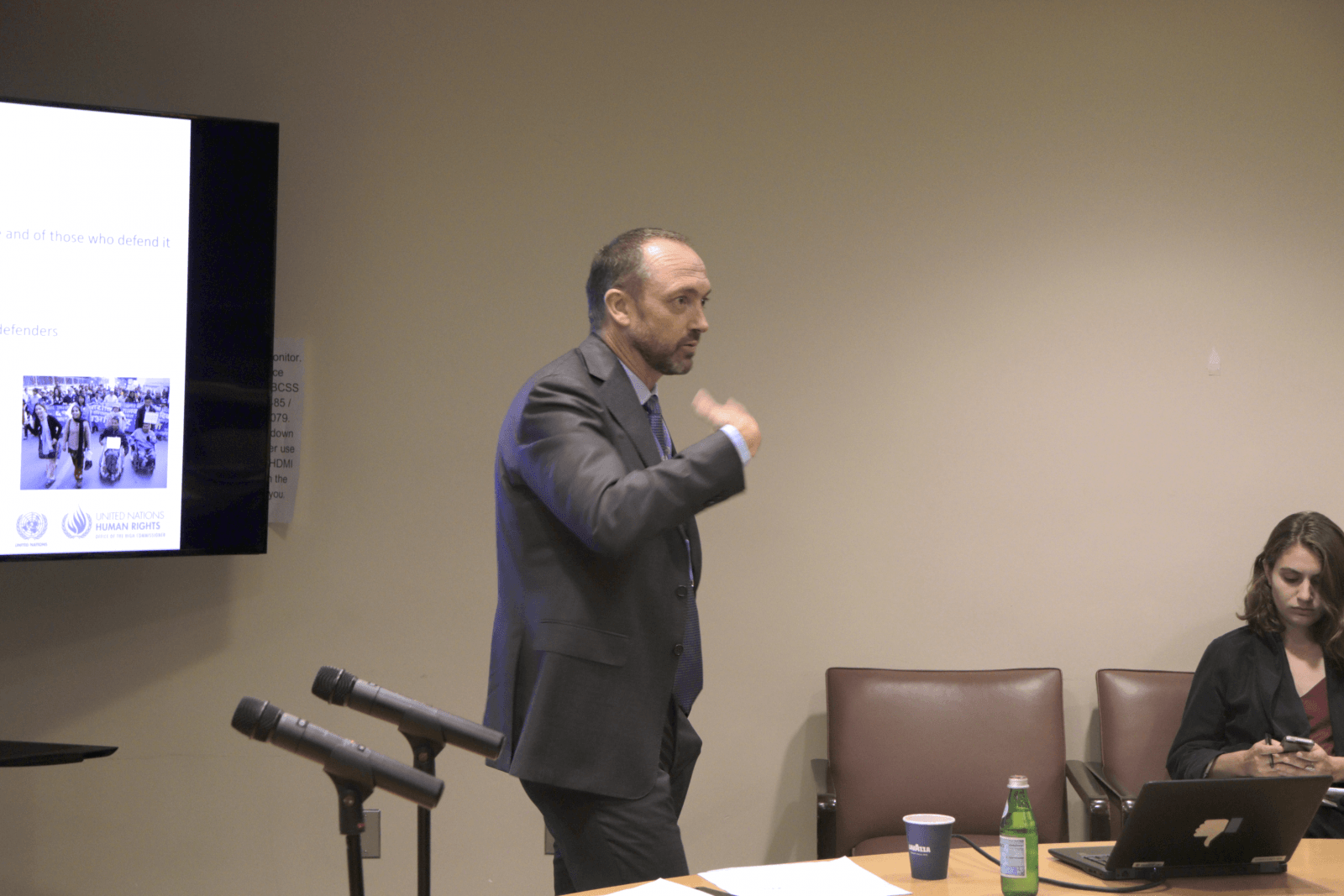
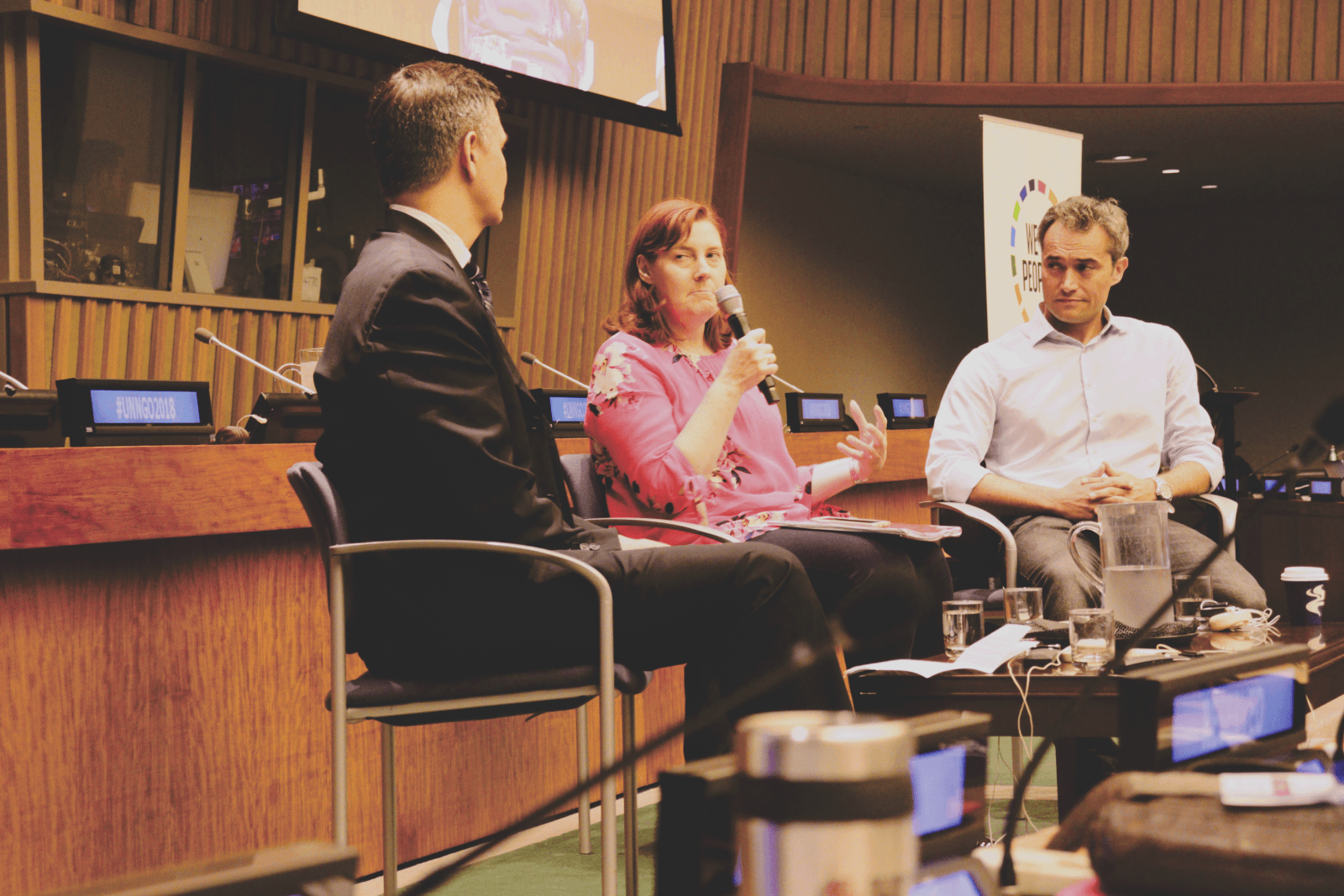
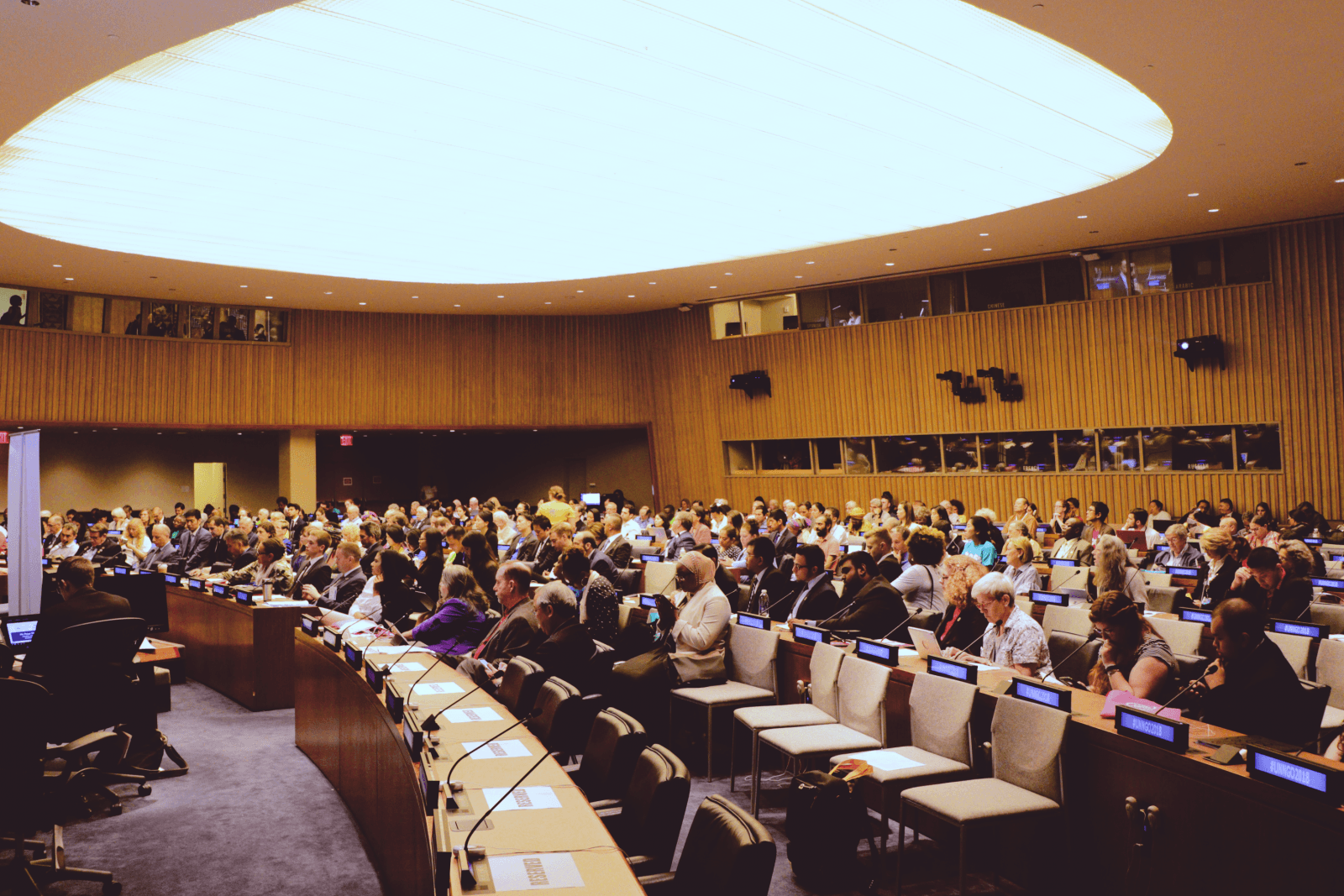
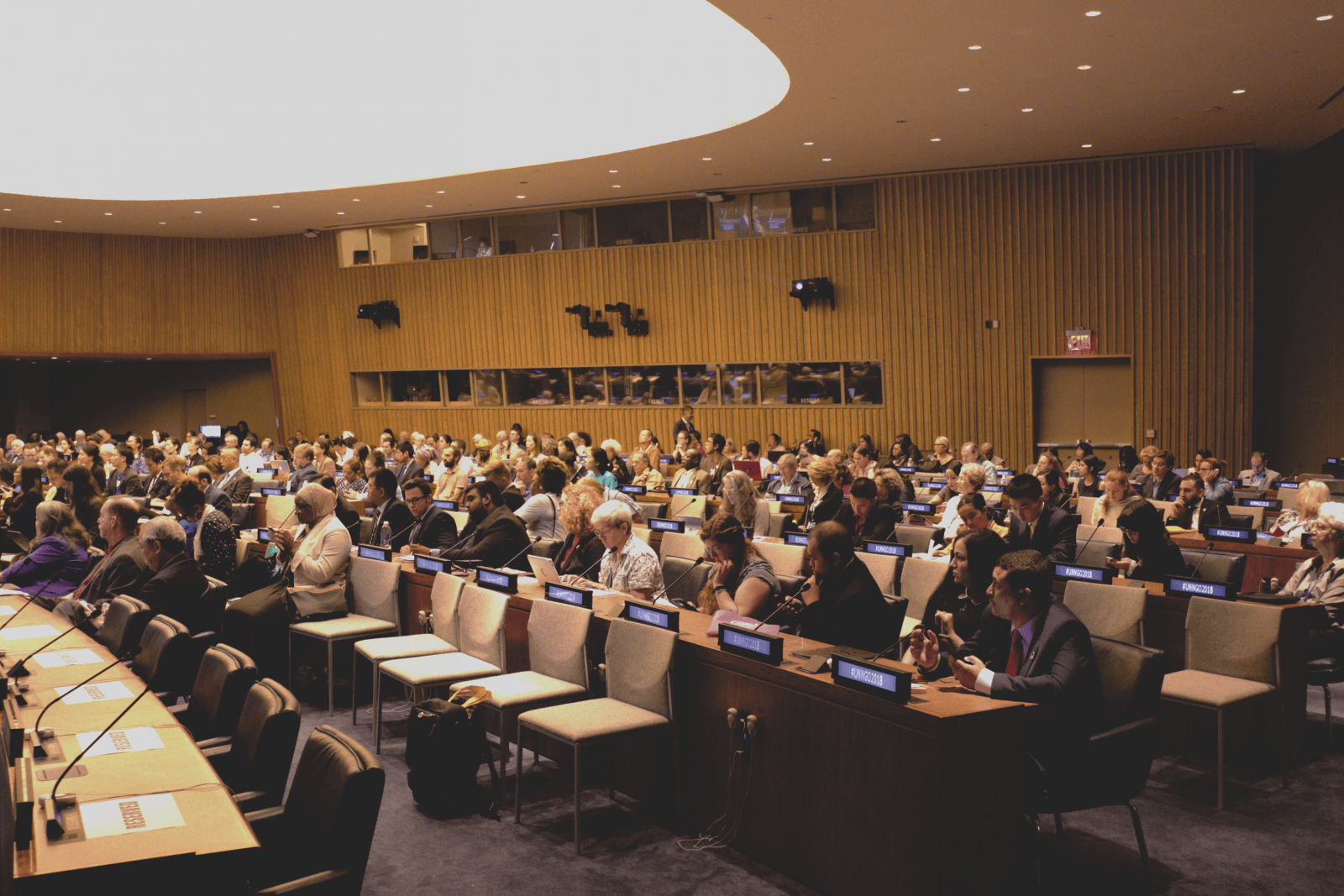
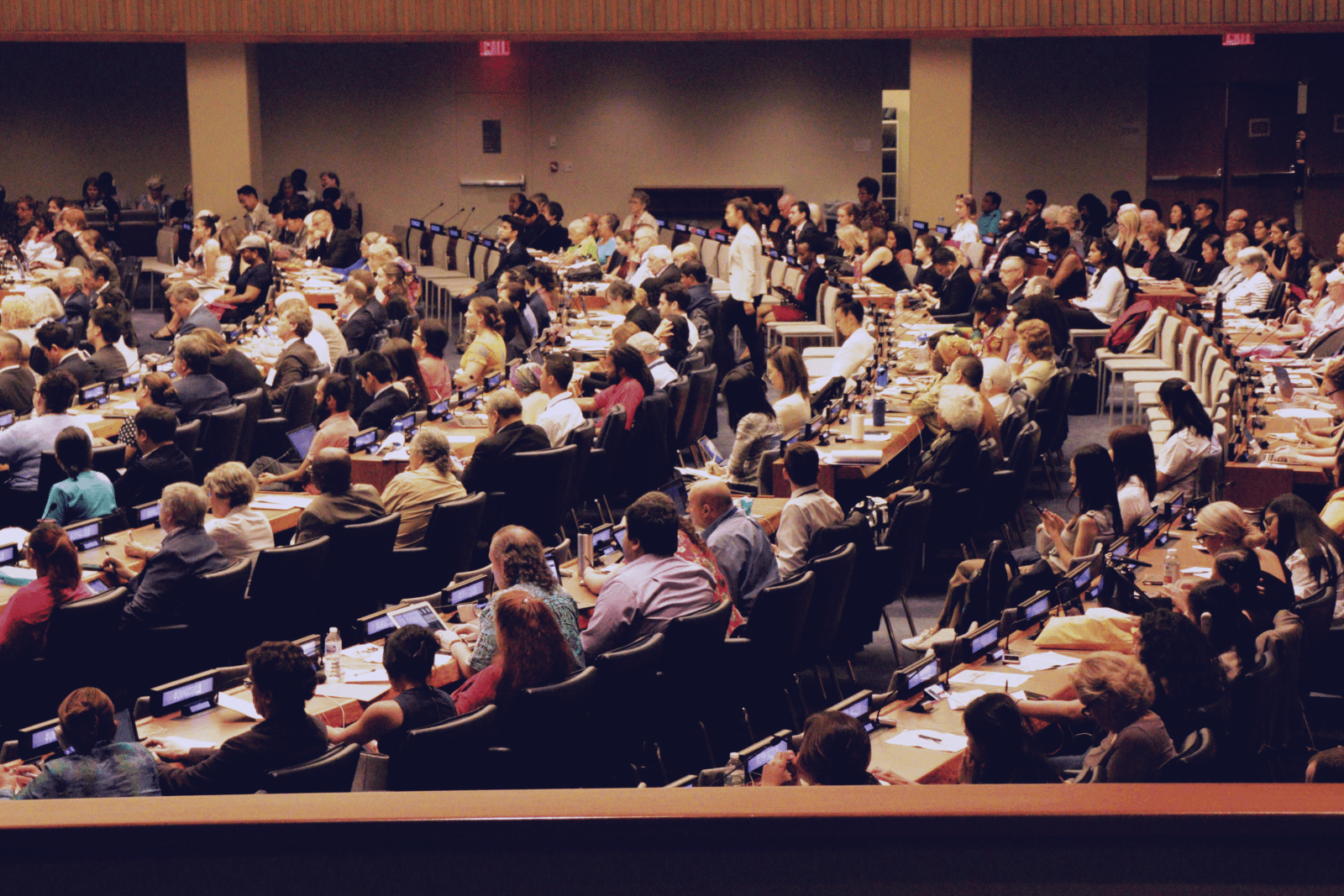
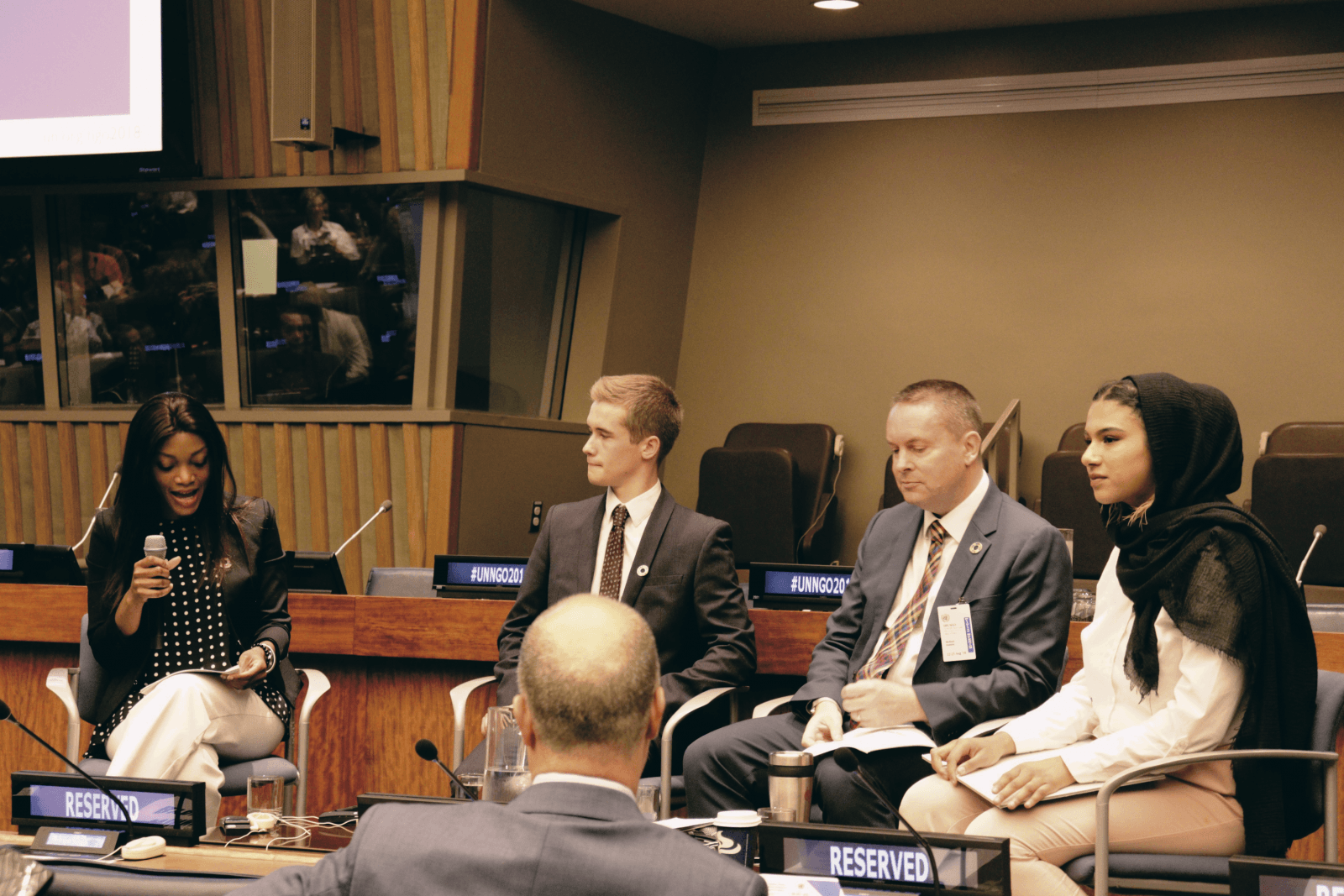
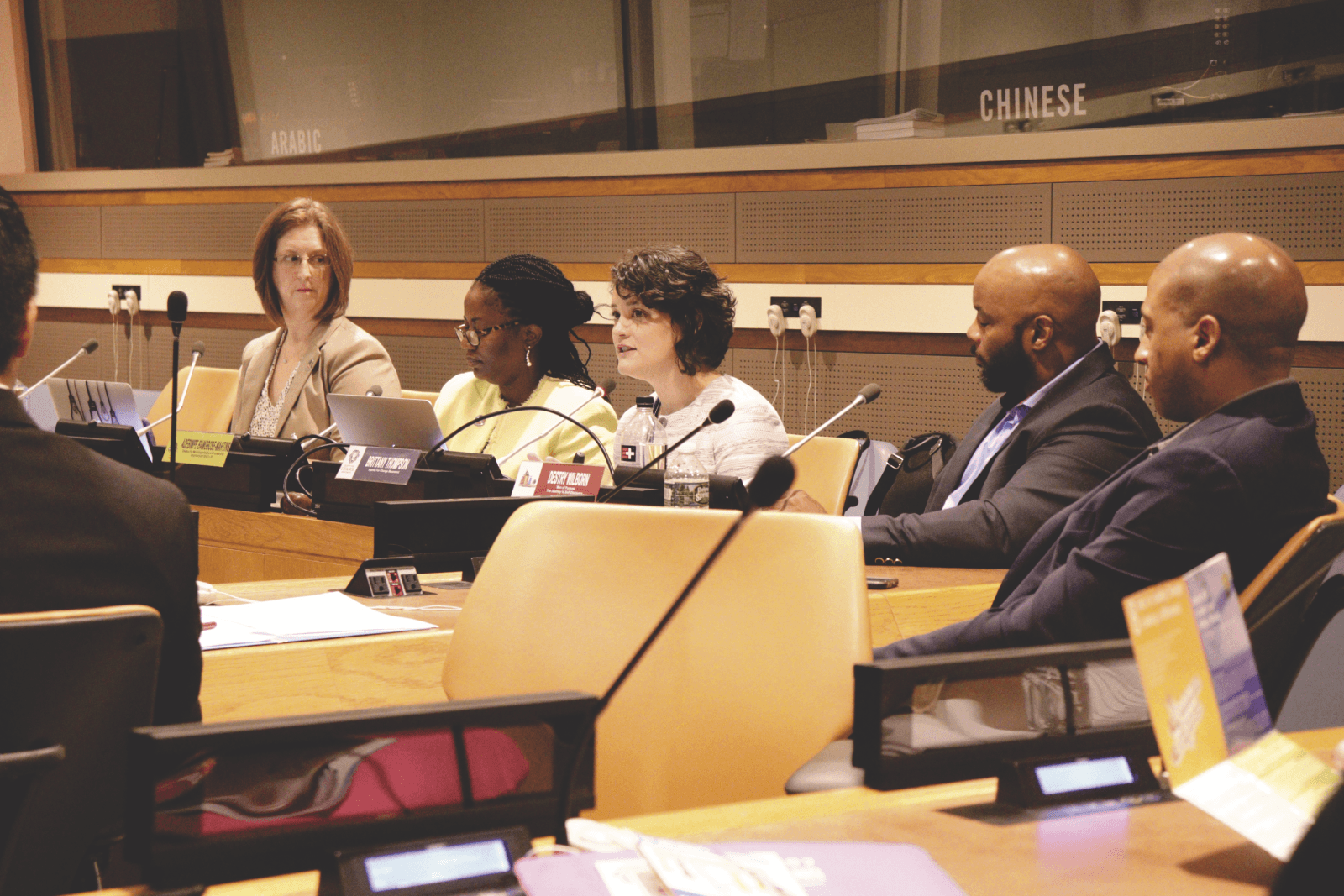
Donate
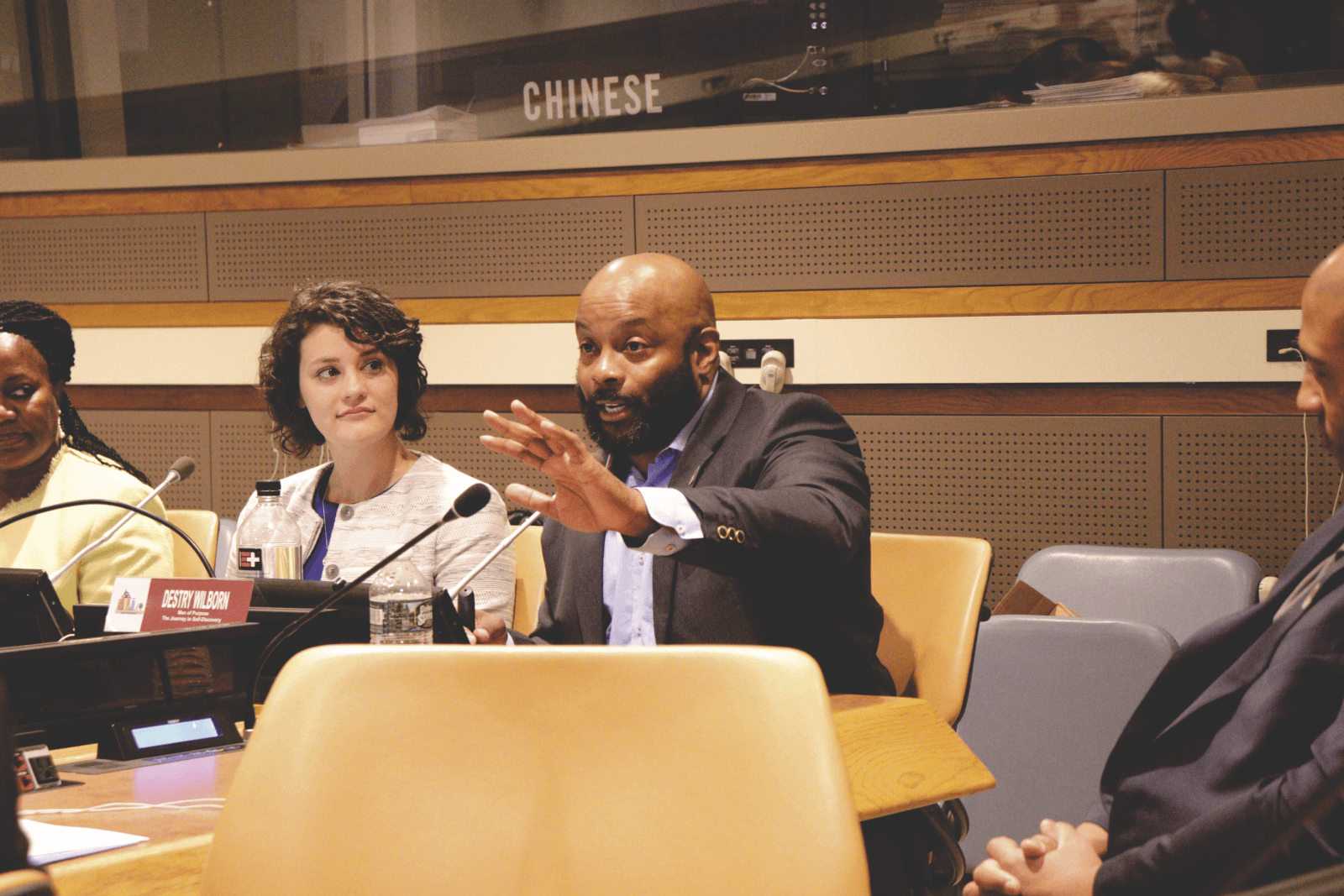

Total Transformation through the Youth
Youth conference members consisted of NGOs members between the ages of 18-32. The discussions centered around interning, mentoring, and open-mindedness. The youth members asked to be included in the debate for a better world and not just be seen as the future but as current leaders. The display of philomathy, integrity, and dedication to the ideas of a free and better world was astonishing. We all watched as a diverse group of university students pledged to dedicate their education to better understanding development, international law, sustainable & medical technology, and education.
The greatest moment of the youth programs was the workshop titled “Exploring Effective Models for Developing the Leadership Potential of the 21st Century Youth”. The NGOs in the program featured stories of young people from all around the world choosing to improve their own communities through cooperation and community organization. The three NGOs took the lead on this program showing how it is possible to mentor the youth into reforming and improving their local governments and communities. Their presentations were impressive and the accomplishments were nothing short of a miracle. To see young people working together in the circumstances they were in was quite inspiring.
The Enlightened Society: UN SDGs
The conference host made sure to connect every one of its programs to what the UN calls the Sustainable Development Goals; a program promoted by the UN’s Division for Sustainable Development Goals (DSDG). The SDGs are 17 development goals mandated by the UN Secretariat. The core idea is to divide up the goals into easy to market taglines and help specific stakeholders including; everyday people, elected officials, NGO leaders, and private businesses.
The SDGs are the UN’s attempt to make up for past mistakes due to the industrial revolution. With the pressures of climate change and globalization, the UN has learned that going forward nations must understand that development in a sustainable way won’t just elevate our climate problems, but will create a global environment that is efficient, free, and could possibly lower the tensions between nations, due to low socio-economic standards. In short, this is the enlightened society; one driven by good growth and changes to the global system. That helps everyone from the local farmer to the international businessperson.
The Global Society & Global Citizens
The conference came to an end, but with more energy and a sense of determination on everyone’s faces. The conference’s chair presented two outcome documents for ratification by the UN DPI NGO members. The youth declaration titled: “We the Future” and the conference resolution titled: “People-Centered Multilateralism: A Call to Action”.
These two documents embodied the motives of the NGOs and organizers involved in the conference. Calling out world leaders, multinational corporations, civil society, and institutions to step up to the challenge. The Youth Declaration—basically a millennial take on multilateralism—called for a total “paradigm shift” by suggesting we create/reform the current “global political structure” into a “rules-based international order”. The youth took a strong position expressing if world leaders cannot get this done then the youth will by 2030. This was a group of young leaders from all over the world, and even more interesting there were young leaders representing all the P5 nations—specifically China, Russia, and the US.
My how times have changed, because it seems the future generations see themselves as global generations, and, moreover, a global society. In closing, the chair asked all members from the ages of 18-32 to stand and vote on the motion to accept the document. The vote ended unanimously and cheers flooded the hall with great pride and zeal as all members were ready to focus on moving the world in the right direction.
The conference was near its end, and the only thing left to do was to vote on the call to action. It was a further extension of the Youth Declaration. It was not as broad and was more focused on policies and process, rather than emotional appeal and vision. This resolution was precise and focused on four main players in our global society; UN member states, multinational corporations, the UN Secretary-General, and all decision-makers.
Six goals were set to be accomplished by 2030:
Respect, protect, and promote the rights of civil society to hold public and private institutions accountable and to participate in decision making,
Advance people-centered multilateralism by developing proposals to revitalize the United Nations on the occasion of its 75th Anniversary in 2020,
Fulfill their obligations under international law,
Honor and uphold the commitments made in the Universal Declaration of Human Rights,
Reaffirm the Declaration on Human Rights Defenders on its 20th anniversary by working to ensure the safety, expression, and freedom of association of those who speak out on abuses, and
Enact policies aimed at eradicating extreme inequality, including by preventing individual and corporate tax avoidance and rights violations, with particular attention to the upcoming Special Session on Financing for Development
From a world federalist perspective this can only be seen as the beginning of what we all in the movement have been waiting for: the acceptance that a world system enforced by world law is the only way humanity can govern itself in such an interconnected and technological world where information and goods move quicker than decision-makers can make laws on a national level. The only choice is to move further. In other words, “people-centered multilateralism”, new multilateralism is Democratic World Federal Government.
Conference Closing
Original Publisher
Democratic World Federalists
All videos and UN DPI NGO Conference information can be found by clicking on the link below.

